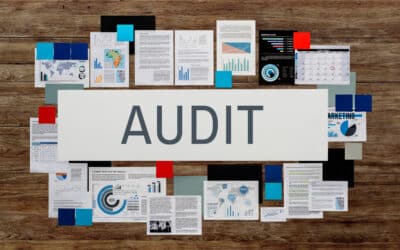The Financial Reporting Council (FRC) has decided to push back its timetable for drafting changes to FRS102 and other financial reporting standards. Originally, it was thought that the final amendments would be ready in the first half of 2024 and be effective for periods beginning on or after 1 January 2025. However, the FRC has said any changes will not affect UK companies reporting under UK GAAP until 2026.
Which companies will the changes affect?
The changes made to the FRS102 and FRS105 accounting standards on 1 January 2026 will affect up to 3.5 million companies.
What are the changes to FRS102 and FRS105?
In a consultation earlier in the year, respondents called for greater alignment with IFRS 15, the international revenue recognition standard used by listed entities in the UK. Despite concerns raised that these requirements could be challenging for smaller businesses to handle, the FRC has confirmed that they are looking to implement a ‘five-step revenue recognition model’ for those that prepare financial reports under FRS102 and FRS105.
The FRC has said that their proposals on lease accounting will only affect companies reporting under FRS102. The FRC has said that they are currently reconsidering how to ensure that the FRS 102 accounting standard is understandable and proportionate for companies of all sizes that report under that standard.
The FRC’s current proposal on low-value assets follows the IFRS16 Leases standard which currently excludes leases valued less than £5,000. It is believed that the FRC may look at increasing the exemption to as high as £10,000, but no confirmation of this has yet been issued.
Why the delay?
FRED 82 proposed a number of amendments to FRS102 and FRS105 regarding revenue recognition, lease accounting and a number of other areas. It is understood that the FRC are taking into account all of the feedback on the proposed amendments to FRS102 and FRS105, as well as waiting for further developments from the International Accounting Standards Board following the implementation reviews of IFRS15 and IFRS 16 and the updated IFRS for SMEs.
Related content
What is an Audit?
An independent party conducts an audit to investigate a company’s financial report. The audit aims to provide assurance (different from a guarantee) that the financial statements are true and fair according to the relevant financial reporting framework. Typically,...
IASB publishes guidance on the effects of climate-related matters on financial statements for SMEs
On 16th May, the IASB published guidance regarding the effects of climate related matters on financial statements prepared in accordance with the IFRS for SMEs financial statements. Full guidance can be found here. The guidance contains examples of areas where...
Government to simplify non-financial reporting rules
The government is currently consulting on various options to simplify non-financial reporting rules indicating consideration of the appropriateness of the current company thresholds. The Department for Business and Trade (DBT) and Financial Reporting Council (FRC) are...




